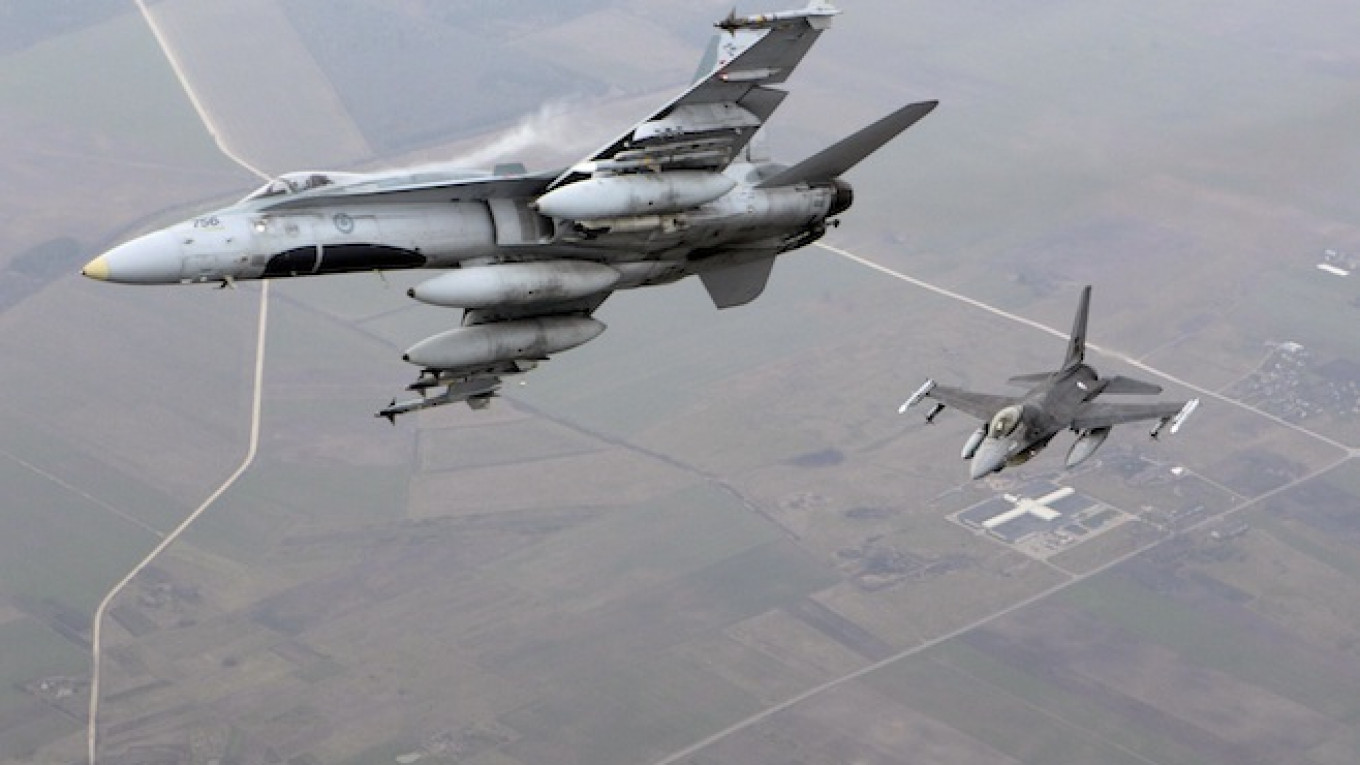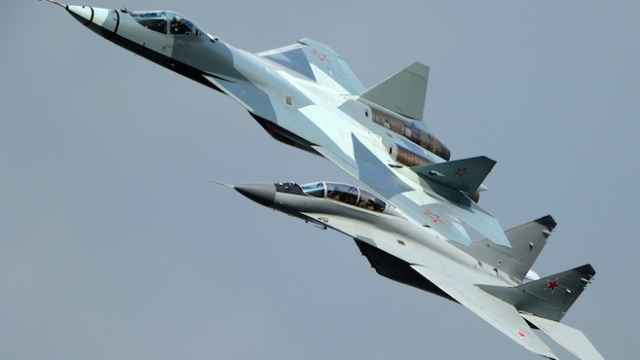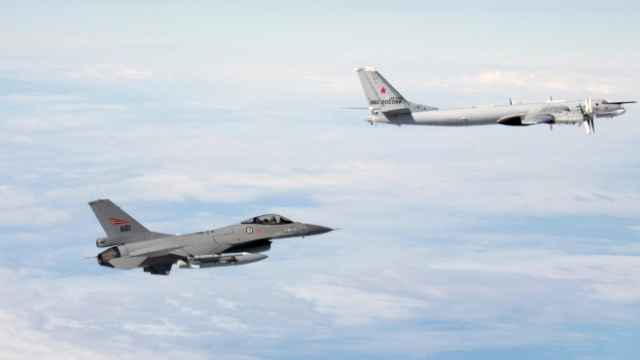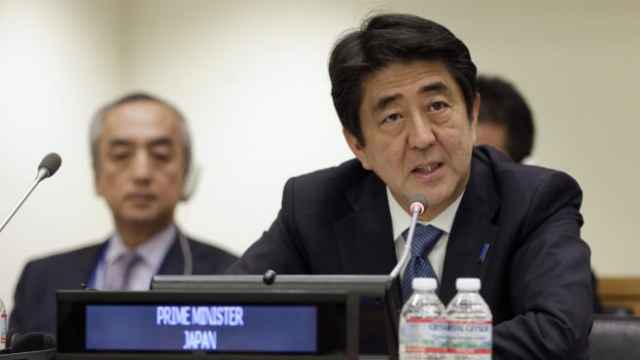NATO warplanes have had to scramble 400 times this year in response to an increase in Russian air activity around Europe not seen since the Cold War, the alliance's chief said Thursday.
North Atlantic Treaty Organization members have sought to fill gaps in the alliance's land, air and sea defenses since Russia annexed Crimea and backed a secessionist movement in the eastern part of Ukraine.
Speaking to U.S., German and Estonian troops at a newly expanded and renovated air base in western Estonia, which once housed a Soviet military installation, Secretary-General Jens Stoltenberg said the problem was not just where the Russians are flying but that they are not turning on their transponders or communicating.
He said the flights — which have risen 50 percent over the last year — posed a risk to commercial air traffic.
"This pattern is risky and unjustified, so NATO remains vigilant. We are here and we are ready to defend all our allies against any threats," Stoltenberg said in a speech after meeting Estonian Prime Minister Taavi Roivas.
"It is a pattern which we have not seen for many years and it is a pattern that reminds us of the way they conducted these kind of military air activities back in the time of the Cold War."
Vice Admiral Peter Hudson, commander of NATO's Allied Maritime Command, said Russia was using its military forces in a "much more assertive manner," which included more Russian naval activity in the Baltic region.
"From a NATO perspective, we are going about our legitimate business in international waters working with our allies. They are occasionally interfering, occasionally operating as a nuisance," Hudson said in London.
"Safety has not been breached, but it is just a style of behavior which we have not seen for 25 years, since the end of the Cold War," he said.
Stoltenberg said most of the Russian flights were close to NATO air space, with "very limited numbers of violations."
NATO allies remain concerned that France could still decide to sell an advanced military helicopter carrier to Russia, Stoltenberg said, but added that this was not a decision that NATO had any authority over.
A Message from The Moscow Times:
Dear readers,
We are facing unprecedented challenges. Russia's Prosecutor General's Office has designated The Moscow Times as an "undesirable" organization, criminalizing our work and putting our staff at risk of prosecution. This follows our earlier unjust labeling as a "foreign agent."
These actions are direct attempts to silence independent journalism in Russia. The authorities claim our work "discredits the decisions of the Russian leadership." We see things differently: we strive to provide accurate, unbiased reporting on Russia.
We, the journalists of The Moscow Times, refuse to be silenced. But to continue our work, we need your help.
Your support, no matter how small, makes a world of difference. If you can, please support us monthly starting from just $2. It's quick to set up, and every contribution makes a significant impact.
By supporting The Moscow Times, you're defending open, independent journalism in the face of repression. Thank you for standing with us.
Remind me later.






